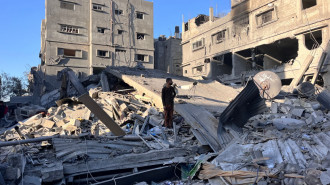Australia looks to compensate victims of war crimes in Afghanistan
The Australian Defence Department announced a compensation plan for the families of victims who were unlawfully killed or abused by Australian special forces in Afghanistan.
For 20 years, over 39,000 Australian soldiers served in Afghanistan and 400 soldiers in part of peacekeeping efforts with the United States and other allies before withdrawing in 2021.
During that time, an investigation found war crimes committed by Australian soldiers, including murder and abuse of many Afghans.
Incidents of shooting to kill prisoners and planting weapons, radios and grenades next to the bodies of Afghan civilians to suggest they were a "legitimate target" were found.
There were also problems with the troops' lack of mentorship and a "warrior culture" focused on status and power rather than being model soldiers.
The 2020 Brereton report, conducted by Major General Brereton, alleged that 25 Australian soldiers were involved in murdering 39 Afghans and recommended referrals for criminal investigations.
However, before the issues go to court, the Australian Defence Force Inspector General believed the government should compensate the victims' families.
A spokesperson for the defence department said the government was committed to implementing the report's findings to the "fullest possible extent" – including compensation.
The regulations for receiving the compensation will have a new Afghanistan Inquiry Compensation Advocate assess a claim if it is referred to by the Chief of the Defence Force (CDF), Admiral David Johnston.
Referrals will be based on a series of criteria: the claimant must relate to someone who is "reasonably likely" to be the victim of abuse or property damage or a family member of someone who was unjustly murdered.
After considering the claim, the Advocate must report to Johnston with their recommendation, who will determine the outcome.
Along with compensation, the Defence Force is also working on reforming army culture, command accountability and deciding whether to strip awards and honours to those involved.
The Australian government is expected to make further announcements in the coming months.







 Follow the Middle East's top stories in English at The New Arab on Google News
Follow the Middle East's top stories in English at The New Arab on Google News

![Lebanon after strikes [Getty]](/sites/default/files/styles/image_330x185/public/2184409977.jpeg?h=a5f2f23a&itok=7wpfQMyI)
![G20 Brazil [Getty]](/sites/default/files/styles/image_330x185/public/2184389194.jpeg?h=a5f2f23a&itok=t1DchCMY)